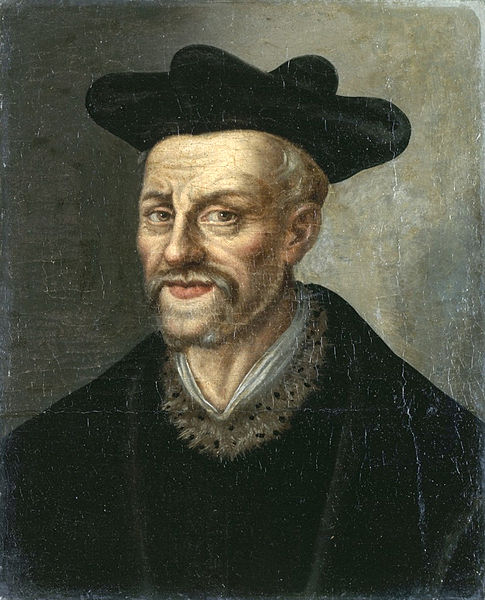Thelema is a Western esoteric and occult social or spiritual philosophy, as well as a new religious movement that was founded in the early 1900s by Aleister Crowley (1875–1947), an English writer, mystic, occultist, and ceremonial magician. Central to Thelema is the idea of discovering and following one's True Will, a unique purpose and calling that goes beyond ordinary desires. Crowley's system begins with The Book of the Law, a text he said was dictated to him by a non-corporeal entity named Aiwass. This foundational work lays out key principles, including the central axiom "Do what thou wilt shall be the whole of the Law". This principle emphasizes personal freedom and the pursuit of one's true path, while being guided by love and finding one's authentic purpose.
François Rabelais
Portrait of Francis Dashwood, 11th Baron le Despencer, by William Hogarth from the late 1750s
The Stèle of Revealing [front] depicting Nuit, Hadit as the winged globe, Ra-Hoor-Khuit seated on his throne, and the creator of the Stèle, the scribe Ankh-af-na-khonsu
Parsons in 1941
Aleister Crowley was an English occultist, philosopher, ceremonial magician, poet, painter, novelist and mountaineer. He founded the religion of Thelema, identifying himself as the prophet entrusted with guiding humanity into the Æon of Horus in the early 20th century. A prolific writer, he published widely over the course of his life.
Crowley in 1925
Aleister Crowley was born as Edward Alexander Crowley at 30 Clarendon Square in Royal Leamington Spa, Warwickshire, on 12 October 1875.
Crowley in Golden Dawn garb, 1910
Crowley during the K2 Expedition, 1902



![The Stèle of Revealing [front] depicting Nuit, Hadit as the winged globe, Ra-Hoor-Khuit seated on his throne, and the creator of the Stèle, the scribe](https://upload.wikimedia.org/wikipedia/commons/thumb/5/58/Stelae_of_Ankh-af-na-khonsu.jpg/360px-Stelae_of_Ankh-af-na-khonsu.jpg)




